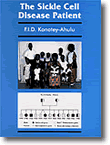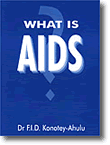Person History The Sickle Cell Disease Patient
THE OCCASIONAL INSTRUCTIVE PERSON HISTORY
The ACHE ACHE Surveyor with the tourniquet phenomenon
A 34 year-old Ghanaian sickle-cell disease [SC phenotype] patient came to see me with severe musculo-skeletal pain crisis. There had been two attacks during the previous 12 months which did not bring him to hospital. The circumstances of all 3 attacks were the same: he was preparing for his Chartered Surveyor professional examinations. Careful questioning revealed that on all 3 occasions he "was down on the carpet" completing his diagrams. "How were you down on the carpet?" I asked the patient who was becoming increasingly irritated by my detailed questioning when what he wanted was "an injection or something that will stop this pain". He had been squatting for upwards of half an hour. As soon as he got up he "went into crisis". My simple explanation to him that squatting produced the 'tourniquet effect' [p 122 in 'The Sickle Cell Disease Patient'], trapping erythrocytes deprived of oxygen, and flooding the body with sickled cells on standing up, has put an end to his crises for the past 5 years". [ From African Journal of Health Sciences Vol 5 No 1, 1998: Konotey-Ahulu FID. Management of patients with sickle cell disease.]
LESSONS:
1. Endeavour to find the precipitating cause of every instance of sickle cell crisis. Not to find a cause does not mean there was not one, or a combination of several causes. Physiologically and pathologically, red cells have to change from round to sickle shape in significant numbers before clinical sickle crisis can take place.
2. In some practices, 3 crises in 1 year would have been considered an indication for offering the patient Hydroxyurea by some Haematologists in UK and USA. Unnecessary for this man. Hydration, Oxygen, Diclofenac suppositories 100 mg once in 24-hours to supplement simple oral analgesics (pain-killers), with Ranitidine 150 mg twice a day to protect the stomach, sent this man back to work within 3 days, and to his exams which he passed! He was advised to report any urinary problems because there have been a couple of reports regarding kidney malfunction with some pain killers. My patients have been fortunate in this respect, and done very well on it.
3. Curling up in a chair or on a couch watching TV for hours also traps blood cells in the legs without returning to the lungs for oxygen, and this can also trigger off severe sickle crisis in a 'perfectly well' patient in the steady state. A totally unnecessary hospitalisation occurs, sometimes the patient ending up in the Intensive Care Unit - and all because she curled up in a chair, or in bed!
4. Remember that it is circumstances that initiate most crises. Keep a diary, and you will find that approaching examinations, staying up late, turning the heating off after midnight during the winter, are among the common precipitating causes of crisis in Europe and North America. In Africa the Ache/Ache syndrome (chwechweechwe/hemkom) is called, in English, 'cold-season rheumatism' because of frequent illness in the cold rainy season.
DISCLAIMER: Advice given here is what I have given to my patients. It is not meant to supplant that given by other health workers to their patients. Although I imply no criticism in these columns, that does not mean I have not disagreed with others in my peer-reviewed published articles listed in the Publications Section of this Web Site. F I D KONOTEY-AHULU
1965 to present day, click here


449Konotey-Ahulu FID. ANNOUNCEMENT OF THE PASSING OF PROFESSOR FELIX KONOTEY-AHULU MD FRCP MAY 2025
2025 | More
2025 | More
Donations
If this website has been of help to you, feel free to make a donation to enable us investigate enquirers who wish to know whether they are carrying an ACHE gene or not, and thus help them make decisions that will prevent the burden of this hereditary ACHEACHE ailment of Sickle Cell Disease and other Haemoglobinopathy.
FAQs (Click here for more)




1. Why is Sickle Cell Anaemia only found in Black people?
This is a very common mis-conception. Sickle cell anaemia (sca) is not "only found in Black people". White people in Greece, Sicily, Turkey, and their offspring around the world suffer from sickle cell anaemia (sca)... | More
This is a very common mis-conception. Sickle cell anaemia (sca) is not "only found in Black people". White people in Greece, Sicily, Turkey, and their offspring around the world suffer from sickle cell anaemia (sca)... | More

2. Why do people with sickle cell anaemia not suffer from malaria?
A common mis-conception. A dangerous misconception. People with sickle cell anaemia do suffer from malaria, and very badly too. Doctors who have been wrongly taught have been known to advise... | More
A common mis-conception. A dangerous misconception. People with sickle cell anaemia do suffer from malaria, and very badly too. Doctors who have been wrongly taught have been known to advise... | More

3. Why then do Science teachers always talk about malaria protection in sickle cell anaemia?
Inadequate knowledge, or plain ignorance is the simple answer. I repeat: malaria affects sickle cell anaemia patients more seriously than it does others.... | More
Inadequate knowledge, or plain ignorance is the simple answer. I repeat: malaria affects sickle cell anaemia patients more seriously than it does others.... | More

ANNOUNCEMENT OF THE PASSING OF PROFESSOR FELIX KONOTEY-AHULU MD FRCP
It is with deep sadness that the Konotey-Ahulu family announce the ...

(GMA Doctors) A truce on hydroxyurea and vulgarity
I as a member of the 1 in 9 GMA Families who have loved ones with ...

Voluntary assisted death: how to ensure access and safety
Voluntary Assisted Dying: Will Inadequate Terminology Not Mislead ...

SITE MAP
If this website has been of help to you, feel free to make a donation to enable us investigate enquirers who wish to know whether they are carrying an ACHE gene or not, and thus help them make decisions that will prevent the burden of this hereditary ACHEACHE ailment of Sickle Cell Disease and other Haemoglobinopathy.
BOOKMARK / SHARE
© 2000 - 2026 Konotey-Ahulu | Privacy Policy | Website designed & developed by Chaplin Multimedia Ltd.


